Source: Leikeji
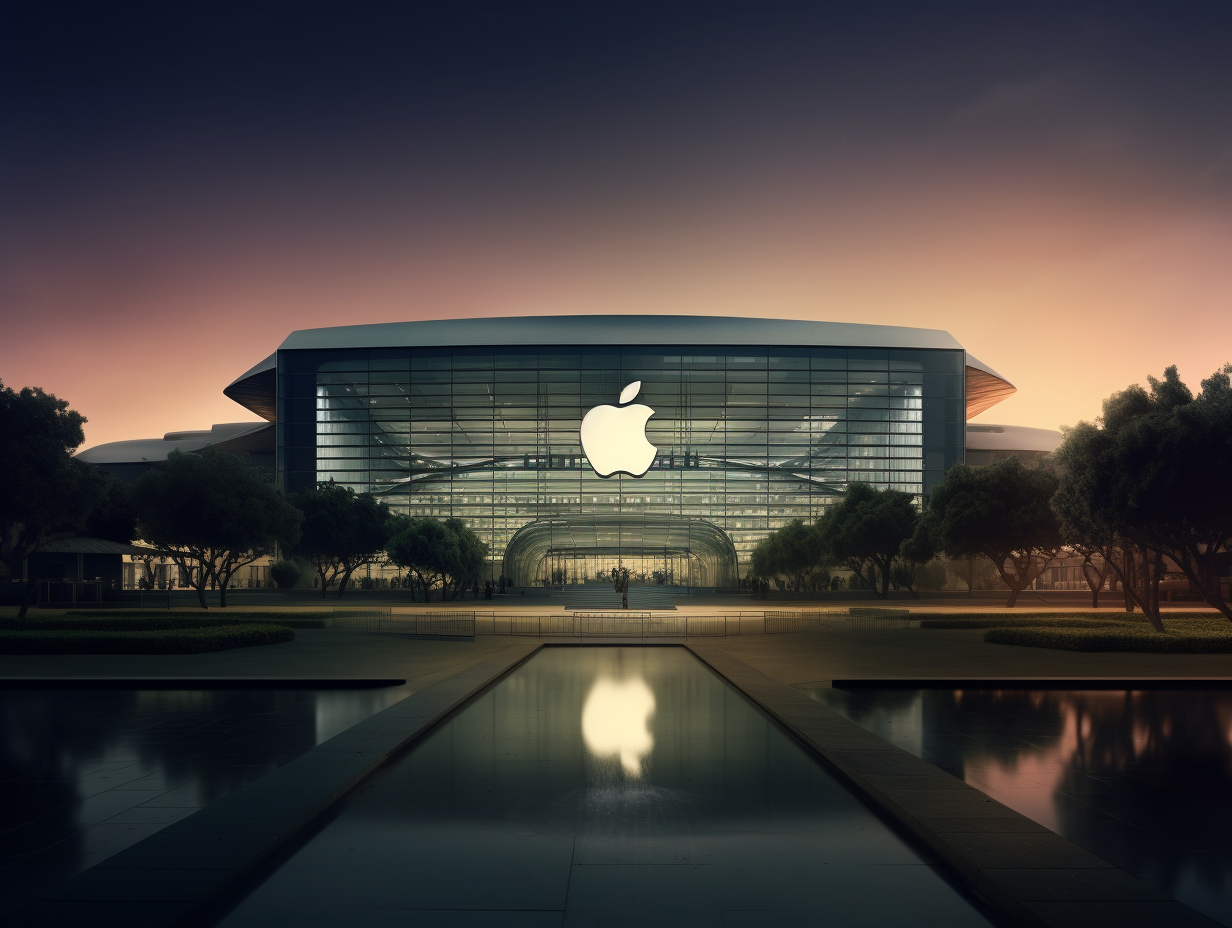
Image Source: Generated by Wujie AI
Even though in 2023, OpenAI had launched the mobile app version of ChatGPT, allowing users to conveniently use ChatGPT's conversation service on their phones, and by the end of the year, they also announced that the voice function on the app version had been made available to all users for free.
However, it must be said that as an "AI assistant," ChatGPT is still not as convenient on mobile phones. If you compare it with the voice assistant that comes with the phone, usually it only takes one click, one swipe, or one call to start a conversation, which is definitely more convenient than opening the ChatGPT app, clicking on the voice or input box to start.
OpenAI also sees this point.
In the previous month, in the 1.2023.352 version update in December 2023, the Android version of ChatGPT added a new activity "com.openai.voice.assistant.AssistantActivity," which directly points to the voice assistant function of the Android system. In addition, this version also added a series of related codes and information.
Although the above new activity has not been officially enabled, even if forcibly enabled, only an unfinished animation will appear, and then… there is no further action. But undoubtedly, OpenAI cannot add these codes and information for no reason.
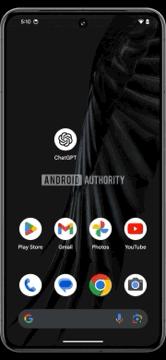
Image/ Android Authority
It is not surprising that we will soon see the Android version of ChatGPT being able to be set as the "default assistant app," and users can call out ChatGPT and directly engage in voice conversations through the usual way of calling out the system's built-in assistant, such as long-pressing the power button or using gesture operations.
From this perspective, the time left for Google Assistant, Apple's Siri, and OPPO's Xiao Bu and other mobile AI assistants is not much… right?
ChatGPT's gunshot heralds the era of large models for mobile AI assistants
OpenAI first launched the web version of ChatGPT at the end of November 2022, which quickly caused a "storm" in the tech industry. The most crucial point was its powerful natural language understanding ability, in simple terms: it can understand human language and respond in human language.
Following that, the wave caused by ChatGPT became more and more intense, sweeping across governments and various industries, and just two months later, the monthly active users exceeded 100 million. At the same time, countless people also saw the wide application prospects of large model technology behind ChatGPT, with large models emerging one after another, and applications also searching and exploring.
The mobile AI assistant was one of the earliest opportunities seen.
In March, Microsoft CEO Satya Nadella complained to the Financial Times of the UK that Apple's Siri, Amazon's Alexa, Microsoft's own Cortana, and the widely recognized Google Assistant, these voice assistants are all as dumb as rocks.
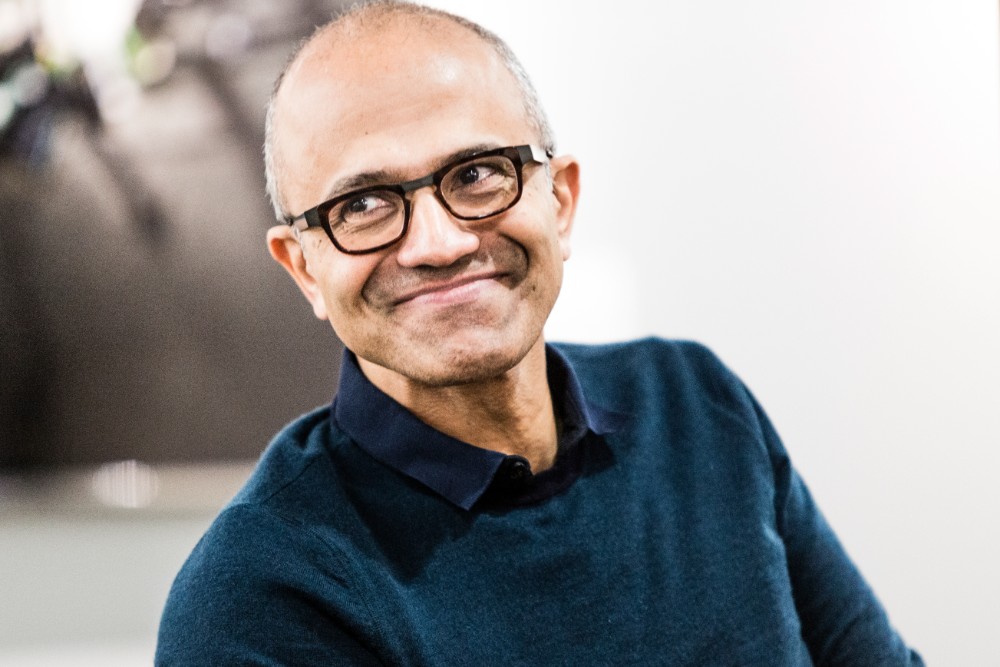
Nadella, Image/ Microsoft
Adam Cheyer, co-founder of Siri, also admitted that ChatGPT's ability to understand complex information makes existing voice assistants look very stupid. This is a problem, but also an opportunity.
At the beginning of the year, we introduced some attempts by individual developers in the article "Can ChatGPT make Siri and Xiao Ai smarter?"—integrating Xiao Ai, Siri, and other commonly used mobile assistants into ChatGPT. At that time, we also made a judgment: the entry of giants is not far off.
In the second half of the year, mobile phone manufacturers successively added large model support to their major system upgrades, such as Xiao Yi (Huawei), Xiao Bu (OPPO), Xiao Ai (Xiaomi), and Xiao V (vivo), and Google is developing local integration of the Gemini large model for Google Assistant. Even "not always trendy" Apple has been rumored to be integrating generative AI into Siri and is expected to officially debut at this year's WWDC.
The trend is here, and it cannot be stopped. Going with the flow is the way to go.
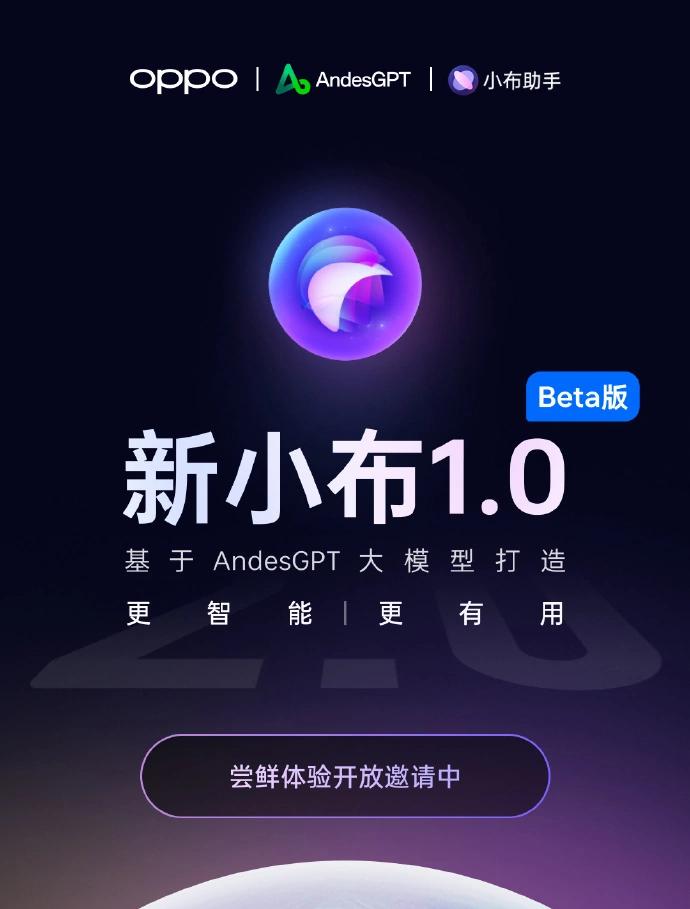
Image/ OPPO
But another issue is that ChatGPT (OpenAI), Copilot (Microsoft), Wenxin Yiyuan (Baidu), and many other AI conversation services similar to ChatGPT, with stronger and "smarter" computing power, will also face the same trend.
The mobile world, who will dominate
On Google Play, ChatGPT's download volume has long exceeded 10 million times, with a rating of 4.7, and the rating on the App Store is even 4.9. Behind the high ratings are the praise and recognition of the majority of users, as well as the level of model output quality of GPT-3.5/4.
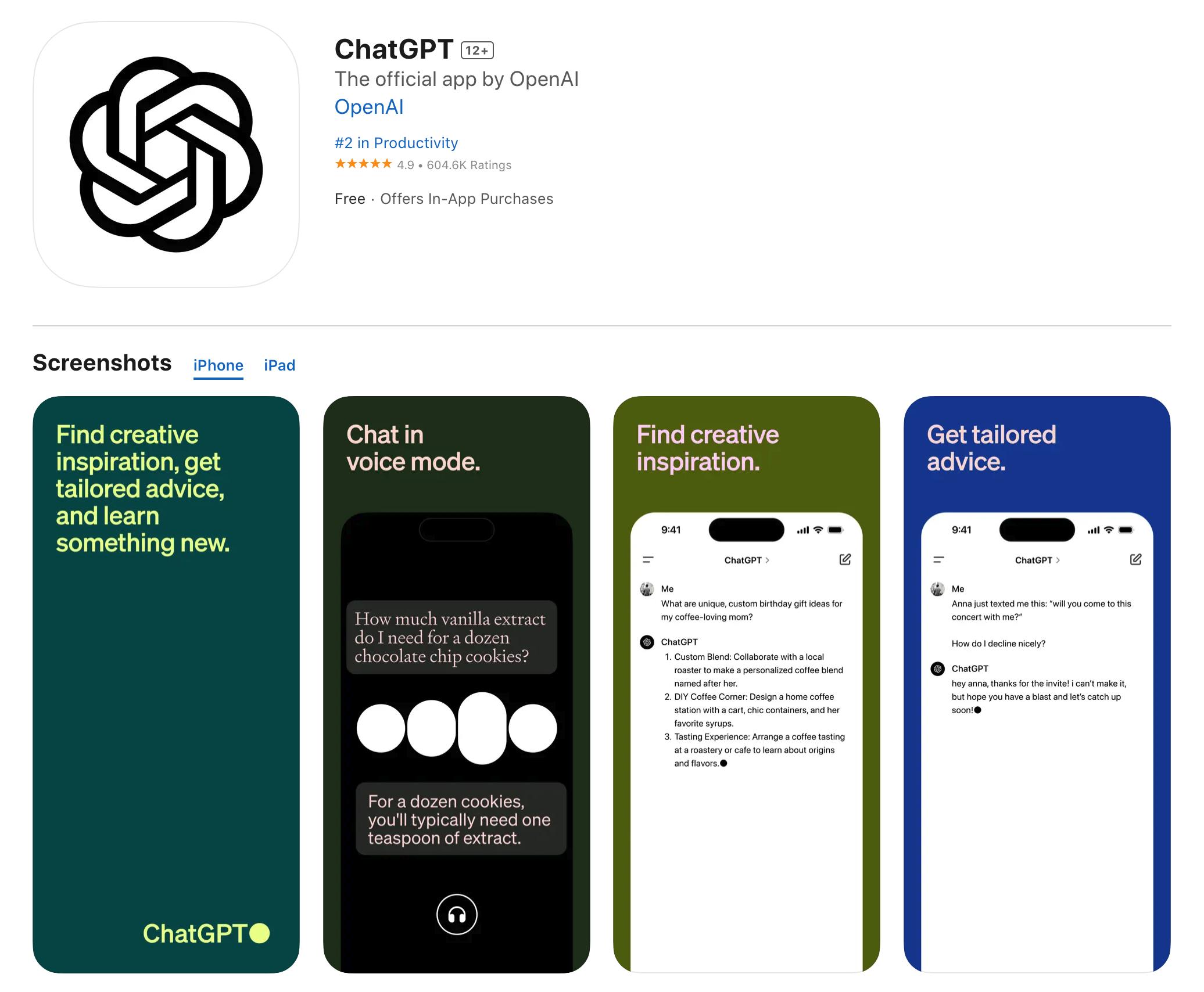
Image/ Apple
In comparison, although mobile phone manufacturers have generally begun to integrate cloud-based and on-device large models into their system's built-in AI assistants, user reviews are not high, and their abilities in logical reasoning, language understanding, and other aspects are relatively weak.
In reality, manufacturers cannot afford to train and adopt models with too large parameter scales, mainly because the cost is too high and it is difficult to establish a reasonable charging model. Just imagine, ChatGPT, Wenxin Yiyuan, and others can adopt a subscription-based charging model, but it is difficult to convince users to pay for a subscription to the system's built-in AI assistant, and it may even lead to backlash.
In other words, mobile phone manufacturers' own AI assistants are "less intelligent" compared to ChatGPT. But mobile phone manufacturers also have their own significant advantages.
We have discussed the inevitable trend of "on-device large models (mobile phones, PCs)" many times before, such as in the article "Redefining smartphones, are large models a false proposition for mobile phone manufacturers?":
The data processing of on-device large models is all done on the device, and the user's personal data will not be uploaded to the cloud server. Only then will users feel comfortable handing over their data to AI for learning, which provides a prerequisite for the mobile AI assistant to truly become a personal assistant.
Next, although Google has long opened up the permission for third-party voice assistants on Android, allowing users to set third-party voice assistants such as Microsoft's Cortana and Samsung's Bixby as the default voice assistant, it is still unable to compare with the built-in Google Assistant in terms of the permissions and interfaces that third-party applications can obtain.
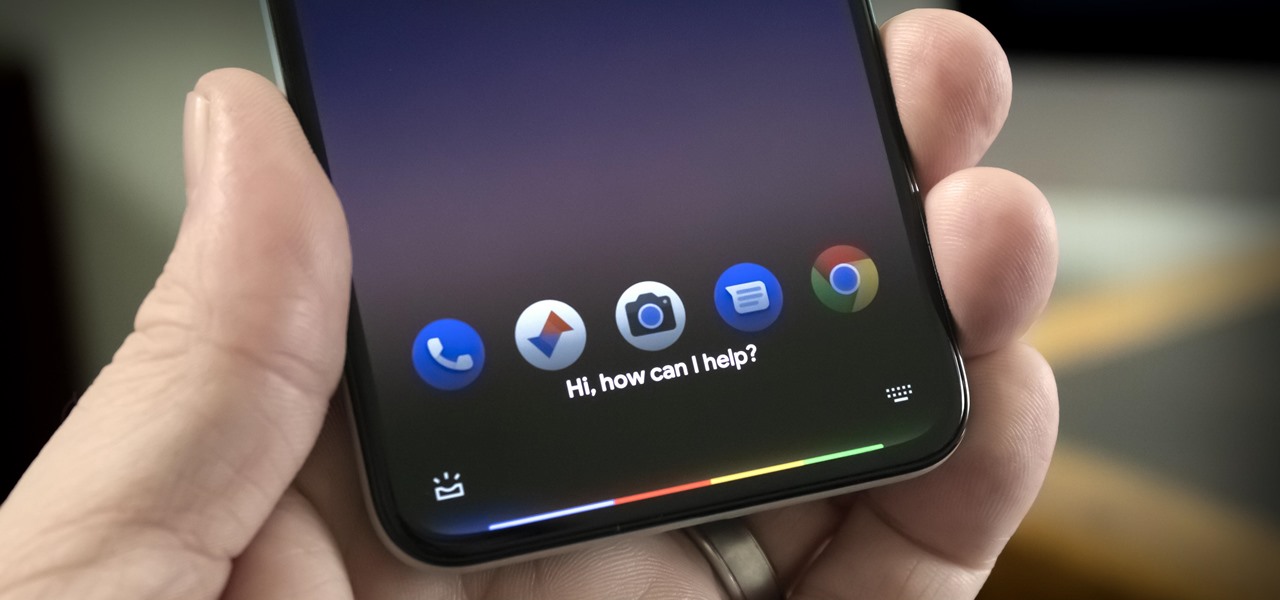
Image/ Gadget Hacks
In other words, even if ChatGPT is subsequently supported to be set as the default voice assistant, its actual influence at the system level may still be limited. It cannot perform a series of operations on the system through commands like the built-in AI assistant, such as voice-activated navigation and reminders. Perhaps the greatest benefit ChatGPT can obtain is the ability to be called out more conveniently, which is crucial, but it is still difficult for it to become a user's true "digital assistant."
And this is still the "most open" Google. Apple, OPPO, Huawei, Xiaomi, and other domestic manufacturers are even less likely to open up to third-party applications like ChatGPT at the system level. At last year's WWDC, Apple announced that users no longer need to say "Hey Siri" to call out Siri, they can just say "Siri"; domestic mobile phone manufacturers have also been continuously lowering the barriers to using their built-in AI assistants and adding more features over the past few years.
In the mobile world, it is still difficult for newcomers to directly confront the established players.
Of course, the disruption in the tech industry often starts from the periphery, not the center.
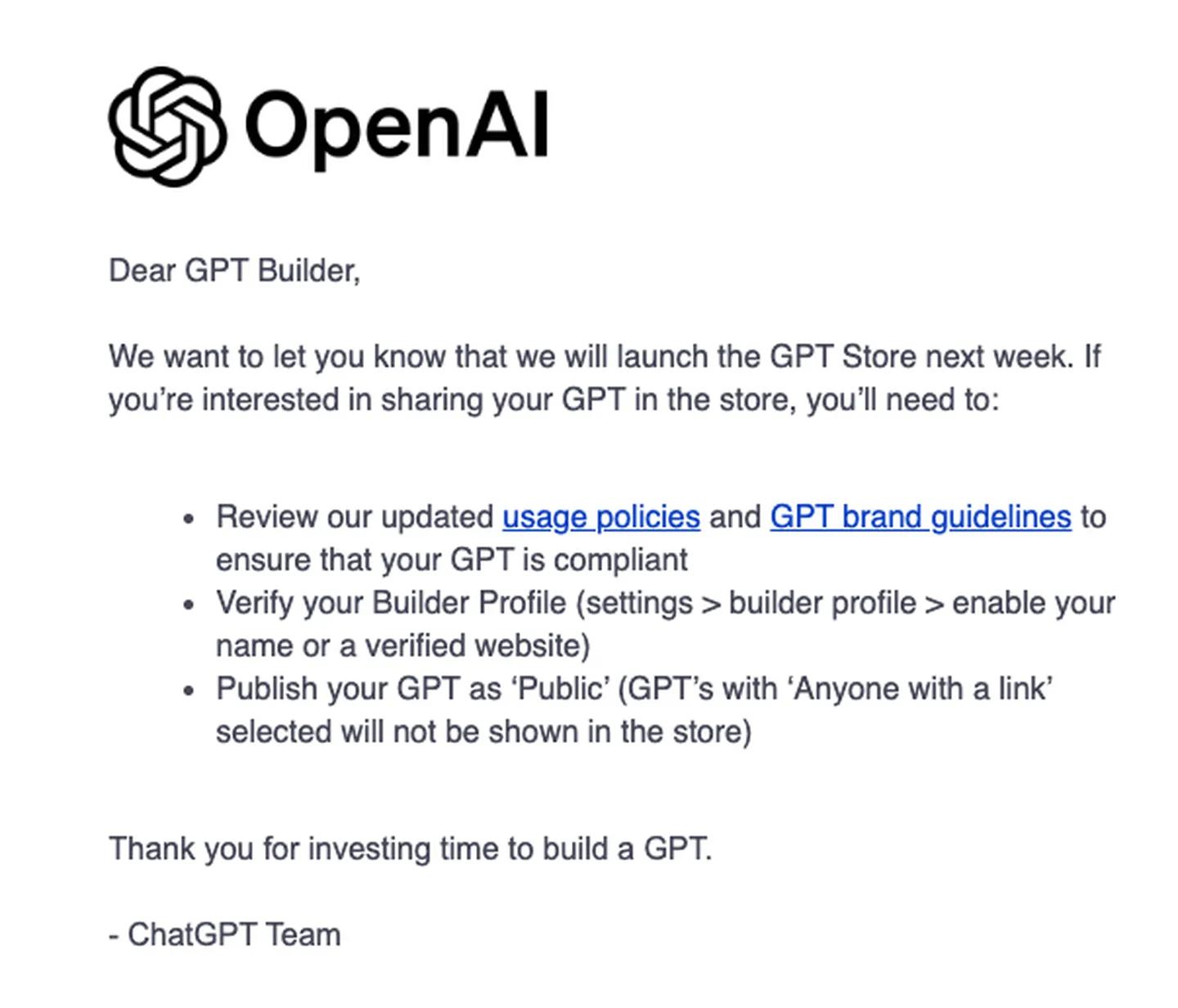
Image/ OpenAI
On January 5th, The Verge obtained an email from OpenAI showing that the long-awaited GPT Store will officially launch next week. Developers of GPTs can then list and "sell" their own GPTs (based on GPT-4) and profit from it. (For more information about the GPTs plan, you can refer to the Leikeji article "ChatGPT in 2023: Creating a New Era of Artificial Intelligence," which introduces part of it.)
Coupled with the existing plugin ecosystem of ChatGPT, it is difficult to say whether this will be another "App Store-style" revolution, and it may even disrupt the existing computing systems: it could be a game-changer.
免责声明:本文章仅代表作者个人观点,不代表本平台的立场和观点。本文章仅供信息分享,不构成对任何人的任何投资建议。用户与作者之间的任何争议,与本平台无关。如网页中刊载的文章或图片涉及侵权,请提供相关的权利证明和身份证明发送邮件到support@aicoin.com,本平台相关工作人员将会进行核查。




